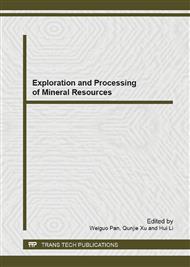p.564
p.568
p.574
p.580
p.585
p.589
p.593
p.597
p.601
Analysis all Kinds of Reservoir Water Degree Condition of East Xing Six District of Daqing Oilfield
Abstract:
East Xing Six District of Daqing oilfield development has 50 years of history, the block has entered high well density, high water cut stage. The apricot East Xing Six District demonstration zone development belongs to the continental sedimentary system, it has reservoir types and physical properties have large differences, It was long-term effected by injected water, after water flooding, water degree condition becomes very complex and unpredictable, so the washing condition analysis is an important guarantee for Daqing oilfield stable production. Using the oil field sealed coring well data, various types of reservoirs washing degree thickness change and growth are analyzed, We can know that with the further water flooding development and well pattern infilling, all kinds of oil reservoir production status; and then analyzes the potential distribution of the oilfields, and provides a basis for the development of the block and the adjustment of the next step of work, has an important guiding significance.
Info:
Periodical:
Pages:
585-588
DOI:
Citation:
Online since:
December 2013
Authors:
Keywords:
Price:
Сopyright:
© 2014 Trans Tech Publications Ltd. All Rights Reserved
Share:
Citation:


